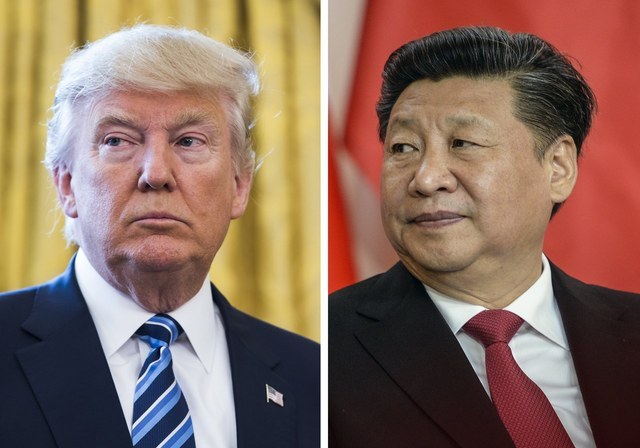With US President Donald Trump in Japan and soon to arrive here with the North Korean nuclear and missile threat high on his agenda, it may be of US interest to keep the two -- arguably the US’ closest regional allies -- unified in resolving the standoff with North Korea.
But for President Moon Jae-in, fresh off from a “let’s patch up” deal with China and now bent on performing a balancing act between two great powers, that is not a simple matter.
Washington has long stressed the need for enhanced South Korea-Japan military cooperation to create a stronger defense partnership among the US, South Korea and Japan. A trilateral alliance would not only better counter North Korea, but ease the strain on US defense capabilities in the region, it asserted.
While acknowledging stronger ties with Japan are essential in deterring the North, South Korea has drawn a line in the scope of its military cooperation with Japan: Japan is an important partner, but is not, and will not be, a military ally.
“I don’t think it is appropriate to develop the cooperation to the level of a (trilateral) military alliance,” President Moon Jae-in said an interview with Singapore’s Channel NewsAsia on Friday. “The cooperation is (specifically) aimed at countering North Korea’s nuclear and missile provocations.”
Moon was said to have struck a stronger tone during his meeting with Trump and Japanese Prime Minister Shinzo Abe at the United Nations in September.
“While the US is our ally, Japan is not,” Moon was quoted as saying by an anonymous senior presidential aide who relayed it to Yonhap News Agency on Sunday.
 |
US President Donald Trump and Chinese President Xi Jinping. Yonhap |
Faced with North Korea’s ever-growing nuclear and missile threat, South Korea, the US and Japan have incrementally increased trilateral defense cooperation, particularly over how to respond to the North’s possible ballistic missile launches.
Since July last year, the three countries have held a missile warning drill every few months. The exercise has largely focused on having warships detect and track incoming missiles via radar in computer-simulated scenarios.
But there has been an obstacle for improving ties: historical strains dating back to Imperial Japan’s occupation of the Korean Peninsula between 1910 and 1945. South Korea believes Japan has yet to fully atone for its colonial atrocities and worries about its military expansion.
“If Japan uses a nuclear-armed North Korea as an excuse for its military expansion, it would not be appropriate for ASEAN nations as well,” Moon told Channel NewsAsia, referring to the Association of Southeast Asian Nations, whose members also suffered under Imperial Japan.
Moon’s remark appeared to coincide with South Korea’s latest efforts to strike a diplomatic balance between the US and China.
Seoul and Beijing recently mended ties soured by the former’s decision to deploy the US Terminal High Altitude Area Defense anti-missile system, which China claimed is a threat to its own national defense.
A written agreement on the reinstatement of the bilateral relations last week states that China has “conveyed its positions and concerns” over the issues of the THAAD, a broader US-led global missile defense network and the tripartite military cooperation among the US, Korea and Japan.
It also says that South Korea, in return, has “reiterated its official positions” to China.
The statement raised speculation that Seoul might have made a secret pledge to China on the three issues, because just a day before the deal was announced, Foreign Minister Kang Kyung-hwa told the parliament that the country was not seeking to develop the current defense cooperation with the US and Japan into a military alliance, will not introduce additional THAAD batteries and will not join the US MD network.
Cheong Wa Dae denied the speculation and asserted nothing that could restrict sovereign issues was discussed during the negotiations, but the Trump administration seems to have taken notice of the notion.
“I don’t think that South Korea would give up its sovereignty in those three areas,” US national security adviser H.R. McMaster told South Korean daily Hankyoreh on Saturday.
The Trump administration has pursued its Asia policy based on the concept of a “free and open Indo-Pacific” region. Having originated with Japanese Prime Minister Abe, the idea calls for the US to bond with Japan and other maritime democracies -- including Australia and India -- to contain a rising China.
At the first Korea-US summit in June, Moon and Trump reaffirmed their commitment to enhance US-Korea-Japan trilateral cooperation. The two leaders also agreed that trilateral security and defense cooperation contributes to enhanced deterrence and defense against North Korea.
By Yeo Jun-suk (
jasonyeo@heraldcorp.com)








